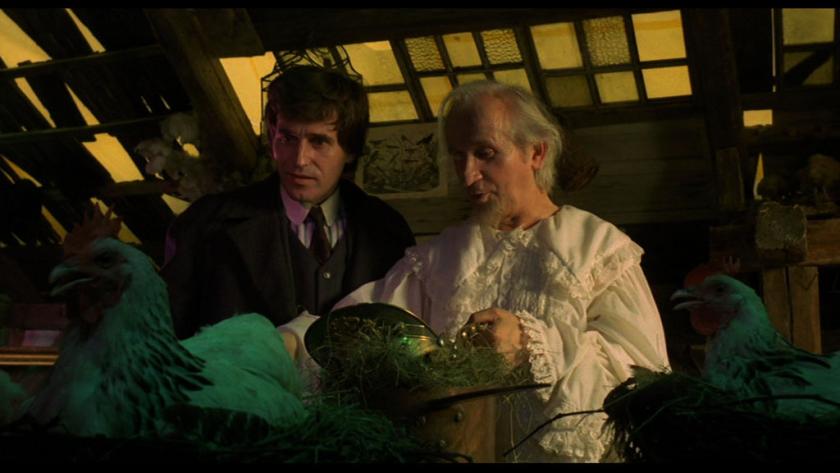The Hourglass Sanatorium tells the surreal story of a man’s visit to a dilapidated medical institution where his ageing father is being held in suspense between life and death. From start to finish, the film portrays a dream world in which time is constantly subverted, as if the hero were freely wandering between parallel universes.
Made in 1973, this bewitching film was directed by Wojciech Has, whose other great work The Saragossa Manuscript is also being released in a restored version. The script of The Hourglass Sanatorium is based on The Sanatorium Under the Sign of the Hourglass by Bruno Schulz, a collection of extraordinary stories which have also inspired the Quay Brothers and Simon McBurney’s Complicité.
Cinema is an art which lends itself to evoking the poetic and non-linear qualities of dreams and the Polish director masters it with extraordinary skill: for the hero Jozef (Jan Nowicki), it is never clear whether time has reversed, stopped or just been released from the mind’s preconceived reliance on clockwork chronology. And, as the film beautifully demonstrates, when time is no longer a reliable measure of reality, neither is space. Spatial continuity is banished as Jozef haltingly progresses through weirdness, bound only by the bewildering unpredictability of dreams.
The cinematography (by Witold Sobocinski) suggests the fluidity of time and space with breathtaking tracking shots that glide seamlessly through elaborate sets, and a surreal quality through sensitive use of close-up and long shot. The Hourglass Sanatorium is a cinematic treat, full of visual riches and dramatic surprises. But, above all, Wojciech Has raises fascinating questions concerning the nature of time, memory, life and death, with images rather than words suggesting not the certainty but the profound mystery that defines human existence.
Watch a clip from The Hour Glass Sanatorium















Add comment